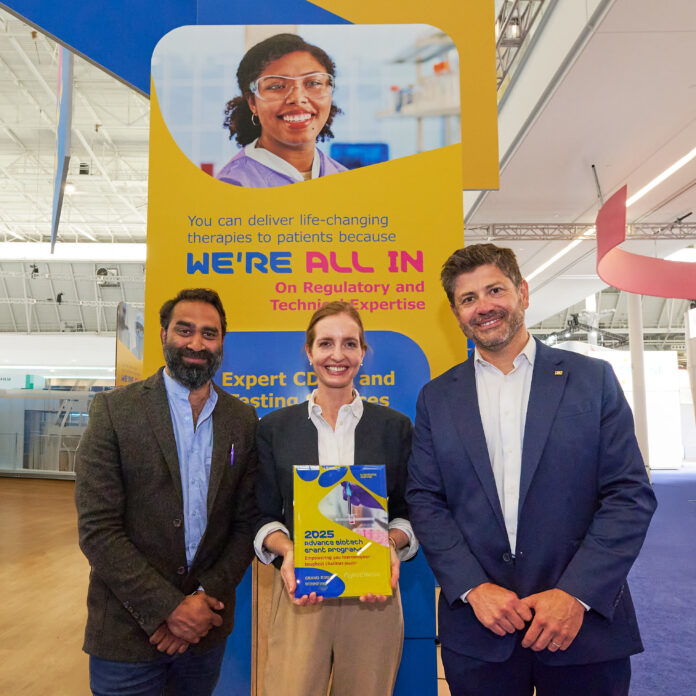Burlington, Mass.– MilliporeSigma, the U.S. and Canada life science business of Merck KGaA, Darmstadt, Germany, has named Neoclease as the winner of its 2025 North American Advance Biotech Grant. The Boston-based biotech startup is developing AI-designed gene-editing therapies, with a lead program targeting Parkinson’s disease—one of over 6,000 monogenic disorders that the company’s platform is aiming to address.
As part of the award, Neoclease will gain access to MilliporeSigma’s technologies, training, and expert guidance to support process scale-up, regulatory navigation, and manufacturing optimization. The startup’s gene-editing platform combines generative AI and synthetic biology to design highly specific therapies that target the genetic root causes of disease, rather than just symptoms.
“Neoclease’s approach exemplifies the kind of innovative science we aim to support through this program,” said Sebastián Arana, Head of Process Solutions for the Life Science business of Merck KGaA. “With our tools and expertise, we hope to accelerate their development of precise, next-generation therapies with fewer side effects and broader impact.”
Neoclease’s lead therapeutic candidate, NCX-L2, is being developed to slow or halt the progression of Parkinson’s disease, a neurodegenerative condition that currently lacks disease-modifying treatments. Beyond Parkinson’s, the platform holds promise for addressing thousands of other inherited conditions through targeted gene editing.
As part of the grant package, Neoclease will receive support through MilliporeSigma’s M Lab™ Collaboration Center and Emprove® Program, which provide hands-on process optimization, quality risk management tools, and regulatory compliance resources tailored to the needs of emerging biotech companies.
The Advance Biotech Grant Program, launched in 2014, reflects MilliporeSigma’s ongoing commitment to early-stage innovation in life sciences. Over 40 startups worldwide have received support through the initiative in therapeutic areas such as oncology, neurology, and cardiovascular disease. Additional grants will be awarded in the Asia-Pacific region this October and in Europe, the Middle East, and Africa in November.


